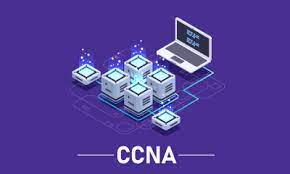In the rapidly evolving field of information technology, networking professionals play a crucial role in designing, implementing, and maintaining the backbone of digital connectivity. To thrive in this dynamic landscape, individuals seek opportunities to enhance their skills and stay abreast of the latest industry trends. The Cisco Certified Network Associate (CCNA) course stands out as a comprehensive and transformative program, uniquely positioned to elevate networking skills. This article explores the ways in which the CCNA course acts as a catalyst for professional development, empowering individuals to excel in the intricate world of networking.
How the CCNA Course Elevates Networking Skills
Here are defined how the CCNA course elevates networking skills
The CCNA Curriculum: A Comprehensive Framework
The cornerstone of the CCNA course lies in its comprehensive curriculum, which covers a broad spectrum of networking topics. From foundational principles to advanced concepts, the course provides a structured learning path that ensures participants gain a holistic understanding of networking. Modules encompass routing and switching, security, wireless networking, network automation, and emerging technologies, creating a well-rounded skill set that is essential in the contemporary Information Technology landscape.
Hands-On Learning: Practical Application of Concepts
One of the defining features of the CCNA course is its emphasis on hands-on experience. Through practical labs and simulations, participants get the opportunity to apply theoretical knowledge in a controlled, virtual environment. This hands-on approach not only reinforces conceptual understanding but also cultivates the problem-solving skills necessary for real-world networking scenarios. The ability to configure routers, switches, and troubleshoot network issues in a simulated environment prepares individuals for the challenges they may encounter in their professional roles.
Routing and Switching Proficiency
At the core of the CCNA course is a focus on routing and switching, the fundamental building blocks of networking. Participants delve into the intricacies of routing protocols, subnetting, VLANs, and network addressing, gaining proficiency in configuring and managing routers and switches. This foundation is essential for creating efficient data paths and ensuring seamless communication within networks, laying the groundwork for advanced networking skills.
Security Expertise: Safeguarding Networks
The CCNA course recognizes the growing significance of cybersecurity in networking. It incorporates comprehensive security modules that address network security, access control, and threat mitigation. Participants learn to implement security measures, safeguard networks from unauthorized access, and respond to potential threats. The inclusion of security expertise ensures that CCNA-certified individuals not only excel in network management but also contribute to creating robust and secure digital environments.
Wireless Networking Mastery
As the demand for wireless connectivity continues to rise, the CCNA course dedicates a portion of its curriculum to wireless networking. Participants explore the principles of wireless communication, learn to configure wireless networks, and address challenges related to connectivity and coverage. The mastery of wireless networking adds a valuable dimension to the skill set of CCNA-certified professionals, enabling them to design and manage networks that seamlessly integrate wired and wireless components.
Network Automation and Emerging Technologies
In recognition of the evolving landscape of technology, the CCNA course includes modules on network automation and emerging technologies. Participants gain insights into automating routine network tasks, enhancing efficiency, and staying at the forefront of industry advancements. Exposure to emerging technologies such as cloud computing, Internet of Things (IoT), and software-defined networking (SDN) equips CCNA-certified individuals with the agility to adapt to the changing demands of the networking ecosystem.
Industry-Relevant Certification: Validating Skills
Earning the CCNA certification is not just an academic achievement; it is a testament to an individual's practical skills and knowledge in networking. The certification is recognized globally as a standard of excellence, validating that the holder has mastered the essential competencies required in the field. Employers and industry professionals view the CCNA certification as a mark of proficiency, providing a competitive advantage in the job market and opening doors to a variety of career opportunities.
Practical Problem-Solving: Real-World Application
Networking professionals are often faced with complex issues that require practical problem-solving skills. The CCNA course, through its hands-on labs and simulations, hones participants' abilities to troubleshoot network problems, optimize configurations, and implement solutions. This practical approach ensures that CCNA-certified individuals are not only well-versed in theory but also equipped to address real-world challenges with confidence and efficiency.
Professional Development and Career Growth
Participating in the CCNA course is not merely a short-term educational endeavor; it is a strategic investment in long-term professional development. The skills acquired through the course are transferable across various networking roles, paving the way for career growth and advancement. CCNA-certified individuals are well-positioned to pursue higher-level certifications and specialize in areas such as security, collaboration, or data center networking, unlocking a myriad of opportunities for further professional development.
Conclusion
In conclusion, the CCNA course emerges as a transformative force in elevating networking skills. Its comprehensive curriculum, hands-on learning approach, and focus on emerging technologies create a unique learning experience that goes beyond traditional education. By mastering routing and switching, acquiring security expertise, and staying abreast of the latest industry trends, CCNA-certified professionals are well-equipped to excel in the rapidly evolving field of networking. The CCNA course not only validates skills but acts as a catalyst for ongoing professional development, empowering individuals to navigate the complexities of modern networking with confidence and proficiency.


No comments yet